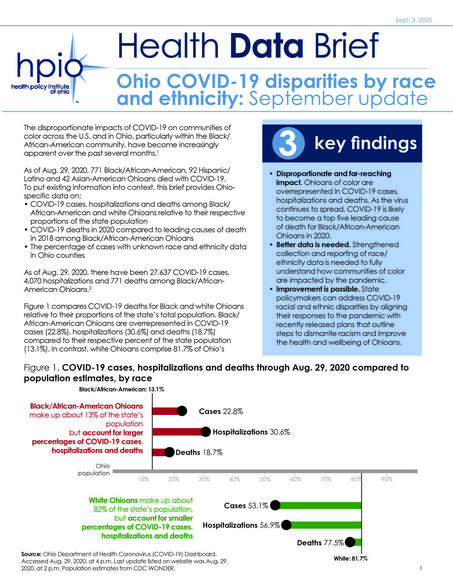
Ohio COVID-19 disparities by race and ethnicity:
September update
The disproportionate impacts of COVID-19 on communities of color across the U.S. and in Ohio, particularly within the Black/African...
Learn More
Ohio COVID-19 disparities by race and ethnicity:
The disproportionate impacts of COVID-19 on communities of color across the U.S. and in Ohio, particularly within the Black/African...
Learn More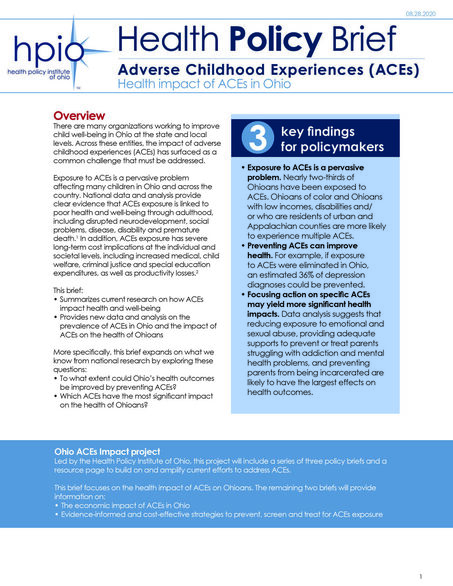
There are many organizations working to improve child well-being in Ohio at the state and local levels.
Learn More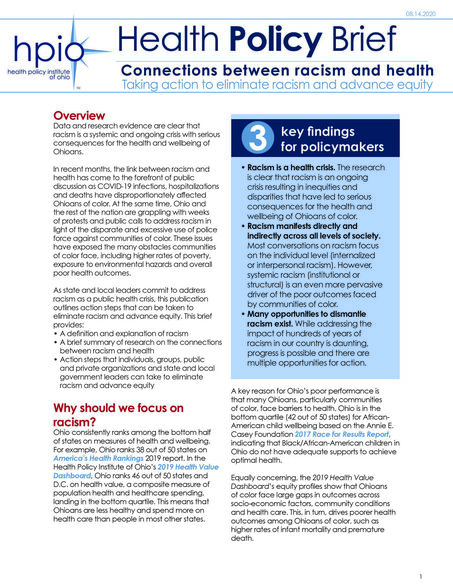
Connections between racism and health:
Data and research evidence are clear that racism is a systemic and ongoing crisis with serious consequences for the health and wellbeing of Ohioans.
Learn More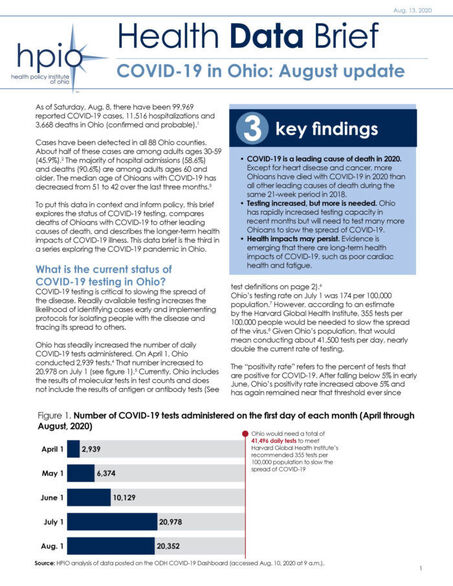
COVID-19 in Ohio:
As of Saturday, Aug. 8, there have been 99,969 reported COVID-19 cases, 11,516 hospitalizations.
Learn More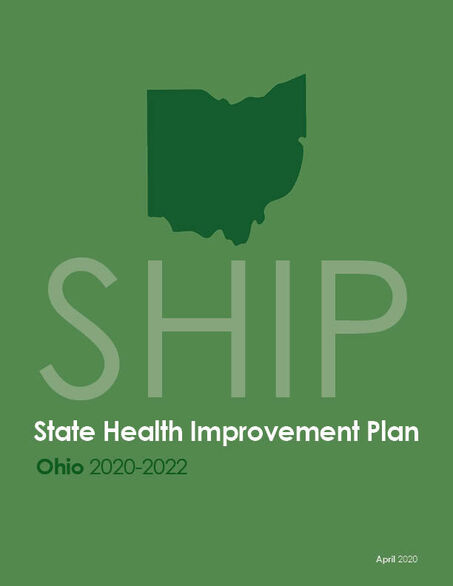
The Ohio Department of Health contracted with HPIO to complete the 2020-2022 State Health Improvement Plan (SHIP), a tool to strengthen state and local efforts to improve health, well-being and econom
Learn More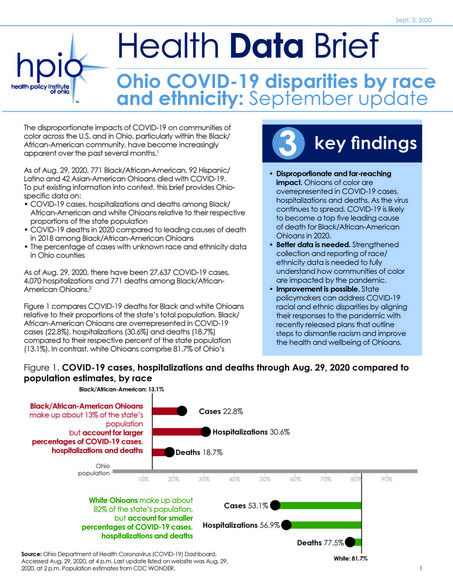
The U.S. Centers for Disease Control and Prevention reports that COVID-19 is disproportionately impacting communities of color in the U.S.
Learn More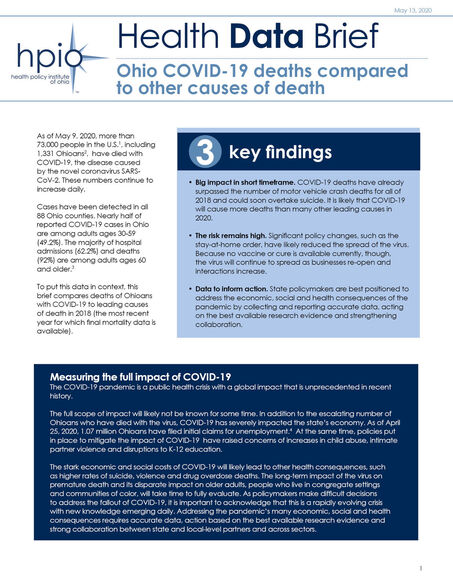
As of May 9, 2020, more than 73,000 people in the U.S., including 1,331 Ohioans, have died with COVID-19, the disease caused by the novel coronavirus SARS-CoV-2. These numbers continue to increase dai
Learn MoreBetween March 25 and June 30, HPIO staff tracked and summarized more than 600 research articles on COVID-19
Learn More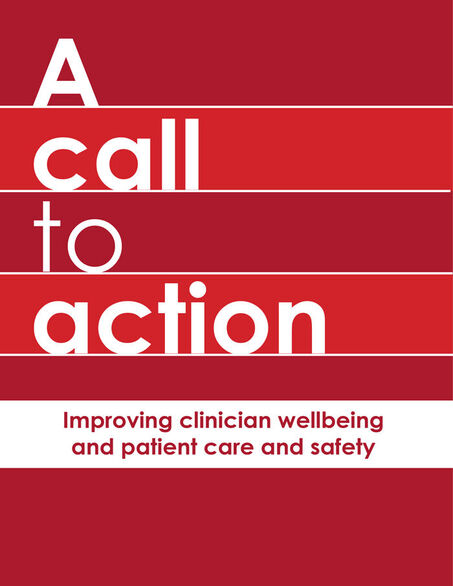
A call to action:
In partnership with The Ohio State University College (OSU) of Nursing Helene Fuld Health Trust National Institute for Evidence-based Practice in Nursing and Healthcare
Learn More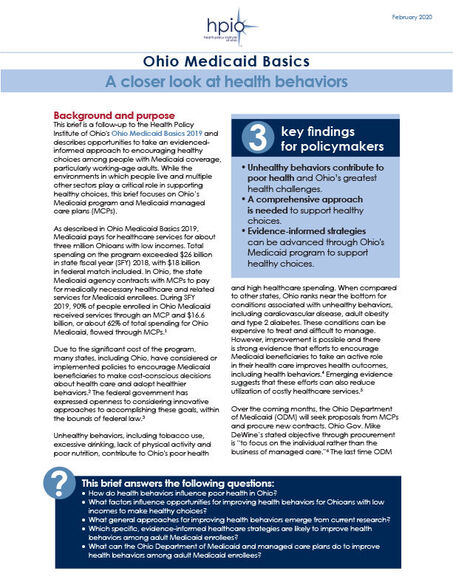
Ohio Medicaid Basics:
The Ohio Department of Medicaid, through contracts with managed care plans, pays for healthcare services for about 1 in 4 Ohioans.
Learn More